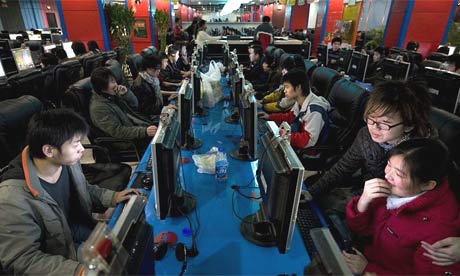The Peninsula
A New China-North Korea Test?

By Sarah K. Yun
Relations between China and North Korea have not always been monolithic. The relationship has been tested and evolved in recent years with the 2006 missile launch and nuclear test, a 2009 missile launch which was also followed by the second nuclear test, and the recent missile launch in April 2012. Additionally, tensions escalated as a result of the detainment of three Chinese fishing boats and crews by North Koreans in May. Previously, the Chinese public has had minimal public discourse on North Korea. The detainment of the fishing boats, however, has stirred public uproar beyond the political realm. What implication do the recent provocations have on the North Korea-China relations? Does the incident signal a new test for China-North Korea relations?
China’s policy towards North Korea has remained consistent on a macro-level but evolved on a micro-level. The Chinese response to the 2006 missile and nuclear tests shed light onto China’s support of North Korea by responding 15 hours after the missile launch and urging all involved countries to remain calm and reserved to prevent escalation of tension. It also showed China’s concerted efforts to engage in active regional diplomacy as Wu Dawei met with his U.S. counterpart, Christopher Hill, on July 7 and committed to act as a balancer between the U.S. and North Korea through the Six-Party Talks framework. China took this opportunity to showcase its potential role in regional diplomacy. The 2009 response showed increased Chinese restraint as the country was working to elevate its status in the world. Their response to North Korea’s missile and nuclear test was more muted and passive than in 2006. While cautiously watching the developments, official Chinese statements repeated its hope for stability and peace on the Korean Peninsula.
China’s response after the April 2012 rocket launch was still cautious but more proactive to curb North Korea’s next steps. This was evidenced by the trilateral foreign minister meeting between South Korea, China, and Japan, where they discussed the future policy towards North Korea as well as the negotiations of the Korea-China-Japan trilateral Free Trade Agreement. China also signed onto the UNSC Presidential Statement against the missile launch, which was adopted just four days after the launch. Soon after, China allowed five North Korean refugees, who had been in the South Korean diplomatic mission in Beijing for three years, to seek asylum in Seoul. The Chinese Ministry of Foreign Affairs admitted that its authorities did not receive any advance notice from Pyongyang about the launch and they expressed disappointment with North Korea’s behavior.
Against this backdrop, the Chinese fishermen were detained on May 8. After eight days, the Chinese fishermen were returned. Although this incident can be categorized as a maritime border issue, rather than a North Korea policy issue, it provided a window into the potential change in China-North Korea relations.
China has been recently entangled with maritime border conflicts with neighboring countries such as South Korea, Japan, the Philippines, and Vietnam. However, their reaction, or lack of reaction, towards North Korea was noticeable. The Ministry of Foreign Affairs stated that “China has been staying in close communication with the DPRK through relevant channels to push for a proper resolution of the issue at an early date. China demands the DPRK to ensure the safety and legitimate rights and interests of the Chinese fishermen.” While the Chinese government tried to remain as neutral as possible, the public engaged in a heated debate on the Internet calling North Korea ungrateful and a threat to Chinese sovereignty. Chinese netizens also criticized their own government for being too weak to stand up against North Korea. After the fishermen returned to China, the People’s Daily, a publication of the Chinese Communist Party, reported that the men were assaulted and stripped of properties while detained. Whether this incident was an intentional sign from North Korea against China’s efforts to improve ties with South Korea indicated by the Korea-China-Japan trilateral FTA, Korea-China FTA, and the sending of defectors to South Korea or not, the changing public discourse on North Korea is noteworthy.
The single detainment incident of Chinese fishermen in North Korea alone will not drastically change the landscape of China-North Korea relations despite the public anger. However, China is capable of adjusting/changing its policies towards North Korea over time as indicated by the implied differences in response from the 2006, 2009 and 2012 missile and nuclear tests as well as the recent detainment. Moreover, it does imply a lack of contact between China and North Korea over the few months of Kim Jong-un’s leadership. The detainment was yet another test in the China-North Korea relations that signaled China’s unhappiness towards North Korea.
The real test for a potential change in the relationship will be North Korea’s third nuclear test. In the event of another nuclear test, China will have to balance its conflicting interests between internal political stability of North Korea, historical ties with North Korea, regional security, increasing unhappiness with North Korea’s decisions, and its reputation as a rising global player.
China and North Korea have undergone many bumps on the road of friendship. Recent developments surround the past missile and nuclear tests expose the changing bilateral relationship. The changing relationship will be unlikely to result in a complete switch in China’s policy towards North Korea as evidenced by continued and growing Chinese economic aid to North Korea under the Kim Jong-un regime. However, the recent detainment of China’s fishing boats created a new dimension in China-North Korea relations to include the Chinese public. Whether the Chinese public will sway its policy decision-making process it to be determined, but it is a significant variable in the future of China-North Korea relations.
Sarah K. Yun is the Director of Public Affairs and Regional Issues for the Korea Economic Institute. The views expressed here are her own.
Photo from visionshare’s photo stream on flickr Creative Commons.
